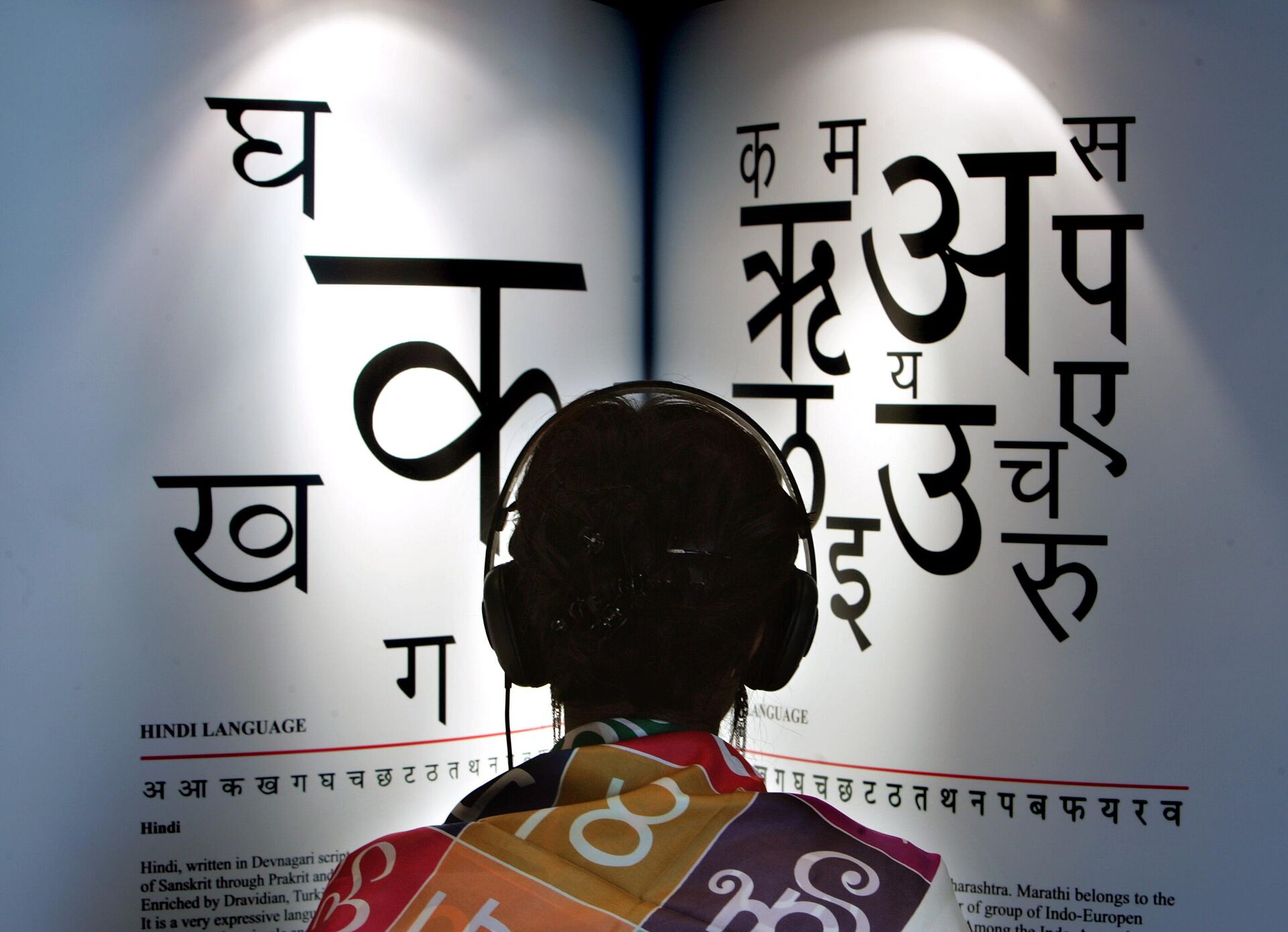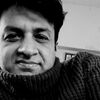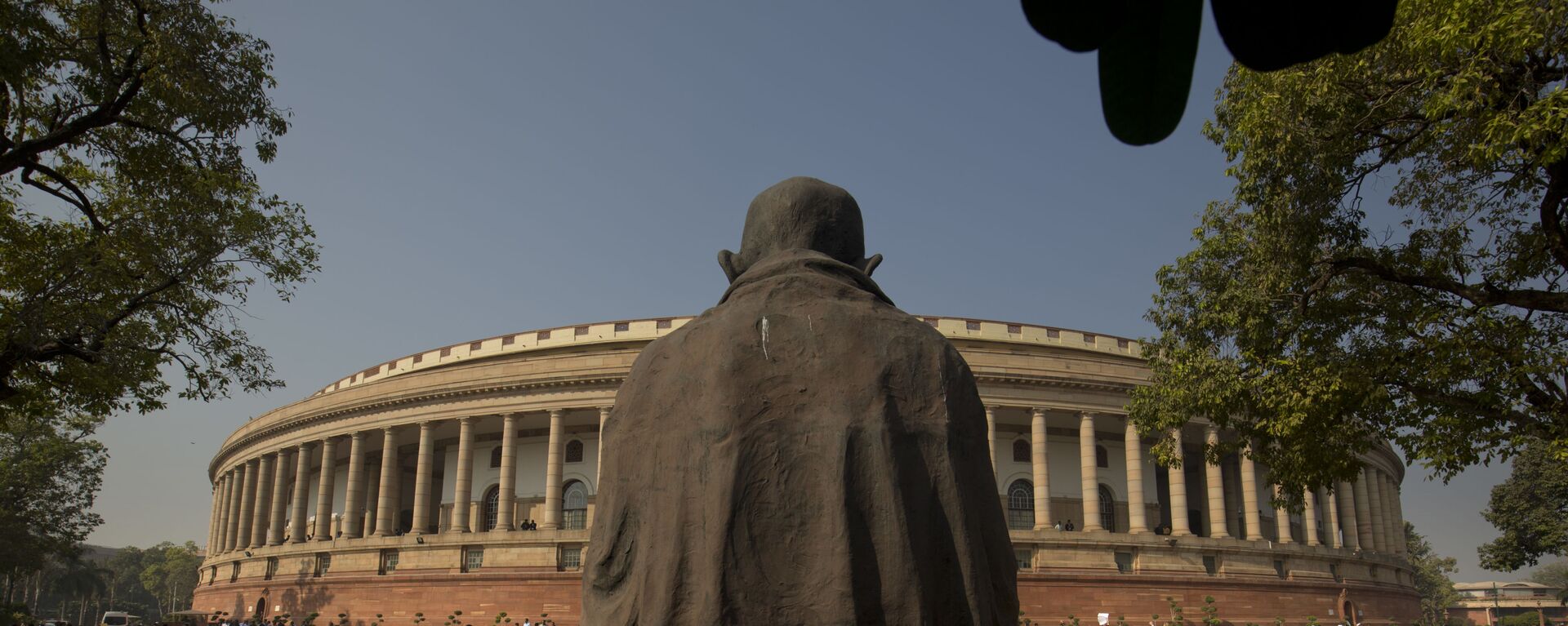https://sputniknews.in/20231210/why-do-intellectuals-cherish-books-5761240.html
Why Do Intellectuals Cherish Books?
Why Do Intellectuals Cherish Books?
Sputnik India
Sputnik India explores how books have left an everlasting mark on the lives of eminent personalities, while providing a good escape from digital distractions.
2023-12-10T10:58+0530
2023-12-10T10:58+0530
2023-12-10T11:42+0530
women's education
india
sputnik exclusives
shashi tharoor
mumbai
the united nations (un)
science & tech
rashtriya swayamsewak sangh
https://cdn1.img.sputniknews.in/img/07e7/06/0c/2453056_0:98:1920:1178_1920x0_80_0_0_bc22a593f6a52de7f81fcff16c98586d.jpg
While digital entertainment may be depriving many of us of enough time to spend with books - the treasure trove of knowledge, learning and wisdom - a section of eminent people in India credit books for their steady personal and professional progress in life.Sputnik India spoke to some of these eminent personalities from different walks of life, for whom reading books has been an integral part of their lives, and why they feel the habit is worth adopting, irrespective of one's busy lifestyle.Engaging Mind, Igniting ImaginationRecalling his early childhood, Congress MP and former UN Under-Secretary-General Dr Shashi Tharoor said books were "my escape, my entertainment and my education".It enabled him to acquire the habit early as an asthmatic child, often confined to bed, sitting up, and unable to breathe, in India without television, Nintendo, PlayStation, laptops, or mobile phones!“I’m sure I read many of those before I was old enough to really understand them.” But in the process, Tharoor shared with Sputnik India, it sharpened his “intellectual curiosity”.This habit has remained with me throughout my adult life, although I must admit that it has become increasingly difficult to find the time to read as much as I would like," said the former UN Under-Secretary-General.Tharoor confesses that his appetite for books far exceeds the time available to read them, and "so my shelves are full of unread or partially read books, as I am often reduced to skimming them or putting them aside for a later time, which often doesn't come".Other forms of pleasure, such as cinema, theatre, television and the like, are much more passive, whereas reading a book engages the mind and ignites the imagination.“Books are like the toddy-tapper’s hatchet – they cut through the rough husk that enshrouds our minds to tap into the exhilaration that ferments within,” stated Tharoor, the noted writer.Books – the Gateway to Find Purpose of LifeTalking to Sputnik India, Dr. Manmohan Vaidya, a prominent Rashtriya Swayamsevak Sangh (RSS) leader, shared that at times he comes across “some uneducated but learned people and some educated unlearned people too”.When there is purpose and direction combined with effort, life flows like water in a river, he explained. "The river chooses to flow between the limits of its banks because it has to reach its goal, to be one with the ocean. Just having an education and earning money is like water in a lake; no matter how big it is, it stinks".The scholar suggests that one must prioritise tasks, and that one can find time to read in order to learn and lead a meaningful life "by navigating the depths of learning beyond education".Road to Constant Growth & Stagnancy Redution“Personally, books and reading habit have allowed me to grow. I would have stagnated had I not taken to books and reading,” revealed Dr. Meeran Chadha Borwankar, the Indian Police Service officer (retd.), to Sputnik India. "So, for personal growth, personal happiness books are a must."Having served as Director General, National Crimes Record Bureau & DG, Bureau of Police Research & Development; Commissioner (Pune Police); and ex-Joint Commissioner (Crime) (Mumbai) as a police officer, Dr Meeran recalled how she always had one or two - in fact, more than two to three - books either by her bedside or in her car, "certainly not in the office".Asked about her current favourite books, Meeran, whose memoir 'Madam Commissioner: The Extraordinary Life of an Indian Police Chief' has sold over 6,000 copies in the last month and a half alone, said: "Stephen R Covey's '7 Habits of Highly Effective People', it has helped me a lot for my personal growth."“And, I am re-reading HarperCollins’ ‘To Kill a Mockingbird’ as a fiction. I just loved it,” she added.An Unexplored Joy Worth Cherishing For Dr K.S. Charak, a surgeon with 15 books under his belt, reading books for hours helped him acquire deep knowledge on many aspects of life and he is known for astrology. Being born to a father who was a teacher by profession, there was a culture of books at home.Although he admits there are various advantages to having all kinds of material available at the click of a mouse in the modern age, Dr Charak believes: "I think we've just put more stuff in our brains."
https://sputniknews.in/20230823/indian-government-announces-major-changes-in-education-system-3786515.html
india
mumbai
Sputnik India
feedback.hindi@sputniknews.com
+74956456601
MIA „Rossiya Segodnya“
2023
Sandeep Datta
https://cdn1.img.sputniknews.in/img/07e7/04/07/1468069_0:258:1800:2058_100x100_80_0_0_3909870b82375b0693e9fd27915facc3.jpg
Sandeep Datta
https://cdn1.img.sputniknews.in/img/07e7/04/07/1468069_0:258:1800:2058_100x100_80_0_0_3909870b82375b0693e9fd27915facc3.jpg
News
en_IN
Sputnik India
feedback.hindi@sputniknews.com
+74956456601
MIA „Rossiya Segodnya“
Sputnik India
feedback.hindi@sputniknews.com
+74956456601
MIA „Rossiya Segodnya“
Sandeep Datta
https://cdn1.img.sputniknews.in/img/07e7/04/07/1468069_0:258:1800:2058_100x100_80_0_0_3909870b82375b0693e9fd27915facc3.jpg
what are the 10 importance of reading? benefits of reading books for students, what manmohan vaidya said, what rss leaders think about reading, what are reading habits of successful people, why people should read books, why book reading is important for success, what top class people read, what made shashi tharoor writer, what made shashi tharoor a great speaker, what is the secret of shashi tharoor's vocabulary, how shashi tharoor started learning, how was shashi tharoor's childhood, what disease shashi suffered from in childhood, how books helped shashi tharoor in life and career, who is shashi tharoor, who is manmohan vaidya, what manmohan vaidya ji said, what manohan vaidya thinks about books, why should we read books, the benefits of reading books, who is meeran chadha borwankar, who was first woman police commissioner of pune, first police commissioner of mumbai crime branch, who is dr k r charak, dr charak vedic astrologer,
what are the 10 importance of reading? benefits of reading books for students, what manmohan vaidya said, what rss leaders think about reading, what are reading habits of successful people, why people should read books, why book reading is important for success, what top class people read, what made shashi tharoor writer, what made shashi tharoor a great speaker, what is the secret of shashi tharoor's vocabulary, how shashi tharoor started learning, how was shashi tharoor's childhood, what disease shashi suffered from in childhood, how books helped shashi tharoor in life and career, who is shashi tharoor, who is manmohan vaidya, what manmohan vaidya ji said, what manohan vaidya thinks about books, why should we read books, the benefits of reading books, who is meeran chadha borwankar, who was first woman police commissioner of pune, first police commissioner of mumbai crime branch, who is dr k r charak, dr charak vedic astrologer,
Why Do Intellectuals Cherish Books?
10:58 10.12.2023 (Updated: 11:42 10.12.2023) Sputnik India explores how books have left an everlasting mark on the lives of eminent personalities, while providing a good escape from digital distractions.
While digital entertainment may be depriving many of us of enough time to spend with books - the treasure trove of knowledge, learning and wisdom - a section of eminent people in India credit books for their steady personal and professional progress in life.
Sputnik India spoke to some of these eminent personalities from different walks of life, for whom reading books has been an integral part of their lives, and why they feel the habit is worth adopting, irrespective of one's busy lifestyle.
Engaging Mind, Igniting Imagination
Recalling his early childhood, Congress MP and former UN Under-Secretary-General Dr Shashi Tharoor said books were "my escape, my entertainment and my education".
It enabled him to acquire the habit early as an asthmatic child, often confined to bed, sitting up, and unable to breathe, in India without television, Nintendo, PlayStation, laptops, or mobile phones!
“As a result, I read widely and indiscriminately, as well as rapidly, and since I had no elder siblings whose books I could borrow, I delved very early into my parents’ collection of books,” Dr Tharoor recalled.
“I’m sure I read many of those before I was old enough to really understand them.” But in the process, Tharoor shared with Sputnik India, it sharpened his “intellectual curiosity”.
The wordsmith politician said it “broadened my mental horizons, and began the process of acquiring both a vast vocabulary, and a taste for good writing and sharp-witted prose”.
This habit has remained with me throughout my adult life, although I must admit that it has become increasingly difficult to find the time to read as much as I would like," said the former UN Under-Secretary-General.
Tharoor confesses that his appetite for books far exceeds the time available to read them, and "so my shelves are full of unread or partially read books, as I am often reduced to skimming them or putting them aside for a later time, which often doesn't come".
“Still, I am of the view that there is no substitute for a book,” the Thiruvananthapuram MP added.
Other forms of pleasure, such as cinema, theatre, television and the like, are much more passive, whereas reading a book engages the mind and ignites the imagination.
“Books are like the toddy-tapper’s hatchet – they cut through the rough husk that enshrouds our minds to tap into the exhilaration that ferments within,” stated Tharoor, the noted writer.
Books – the Gateway to Find Purpose of Life
Talking to Sputnik India,
Dr. Manmohan Vaidya, a prominent
Rashtriya Swayamsevak Sangh (RSS) leader, shared that at times he comes across “some uneducated but learned people and some educated unlearned people too”.
Differentiating education from learning, the thought leader stated that education provides a person a means to earn a livelihood, whereas learning is different from education. “Learning gives you a purpose in life. If the purpose is clear and the direction is decided, you can set your priorities.”
When there is purpose and direction combined with effort, life flows like water in a river, he explained. "The river chooses to flow between the limits of its banks because it has to reach its goal, to be one with the ocean. Just having an education and earning money is like water in a lake; no matter how big it is, it stinks".
Books help to learn the meaning and purpose of life. It is said that first we learn to read and then we read to learn, the RSS Joint General Secretary pointed out.
Talking of the common excuse of being too occupied to be with books, he stated that by managing tasks, one can spare time for reading to learn. “Like the fish lives in water, we live in time. How can a fish say that there is no water? Similarly, no one can say that he or she doesn’t have time.”
The scholar suggests that one must prioritise tasks, and that one can find time to read in order to learn and lead a meaningful life "by navigating the depths of learning beyond education".
Road to Constant Growth & Stagnancy Redution
“Personally, books and reading habit have allowed me to grow. I would have stagnated had I not taken to books and reading,” revealed Dr. Meeran Chadha Borwankar, the Indian Police Service officer (retd.), to Sputnik India. "So, for personal growth, personal happiness books are a must."
Having served as Director General, National Crimes Record Bureau & DG, Bureau of Police Research & Development; Commissioner (Pune Police); and ex-Joint Commissioner (Crime) (Mumbai) as a police officer, Dr Meeran recalled how she always had one or two - in fact, more than two to three - books either by her bedside or in her car, "certainly not in the office".
“Night-reading before sleep has been my habit. While travelling long distances also I would always have 2-3 books in my car,” she stated, admitting to have also fallen “prey to podcasts and online reading”.
Asked about her current favourite books, Meeran, whose memoir 'Madam Commissioner: The Extraordinary Life of an Indian Police Chief' has sold over 6,000 copies in the last month and a half alone, said: "Stephen R Covey's '7 Habits of Highly Effective People', it has helped me a lot for my personal growth."
“And, I am re-reading HarperCollins’ ‘To Kill a Mockingbird’ as a fiction. I just loved it,” she added.
An Unexplored Joy Worth Cherishing
For Dr K.S. Charak, a surgeon with 15 books under his belt, reading books for hours helped him acquire deep knowledge on many aspects of life and he is known for astrology. Being born to a father who was a teacher by profession, there was a culture of books at home.
Although he admits there are various advantages to having
all kinds of material available at the click of a mouse in the modern age, Dr Charak believes: "I think we've just put more stuff in our brains."
"I think the pleasure of holding a book in your hand and reading it cannot be replicated by online reading... I find it much easier to read a book. It gives you the feeling that you have something material to engage with. That feeling, I think, is perhaps lacking in many young people," he told Sputnik India.




